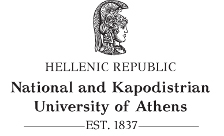TYPE: MODULE COURSE
TITLE: GAME THEORY
CODE: ECO412
SEMESTER: 7th
TUTOR: FRAGO KOURANDI
Course link: https://eclass.uoa.gr/courses/ECON590/
Course description
This course introduces the main concepts and tools of Game Theory with the aim to enable students to: (i) know the basic concepts and mathematical techniques of Game Theory, (ii) use the game-theoretical concepts and techniques in the analysis of economic applications (such as oligopoly), (iii) analyze real-world problems that involve strategic decision-making using the mathematical tools of Game Theory.
Game Theory examines the interdependence between two or more involved parties (players). In a game, players' outcomes are affected by the other players’ decisions. Game Theory analyzes these strategic interdependencies with the goal of predicting where these interactions will end up and providing a theory of how rational players choose their strategies when faced with other rational players.
Lectures cover:
- Introduction
Static games with complete information
2. Nash equilibrium
3. Famous games
4. Mixed strategies
5. Refinement of Nash equilibria
6. Continuous variables
Dynamic games with complete information
7. Sequential move games
8.Subgame Perfect Nash Equilibrium
9. Imperfect information
10. Continuous variables
Static games with incomplete information
11. Bayes-Nash Equilibrium
12. Continuous variables
Knowledge of Microeconomic Theory I, Microeconomic Theory II and mathematical calculus is taken for granted.
Books
Basic book: Robert Gibbons, A Primer in Game Theory, Harvester-Wheatsheaf
Additional book: Γεώργιος Σταματόπουλος (2015), Θεωρία Παιγνίων, Kallipos, Open Academic Editions
